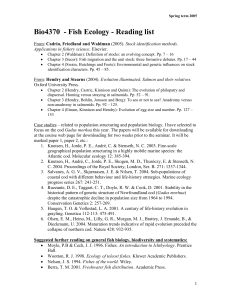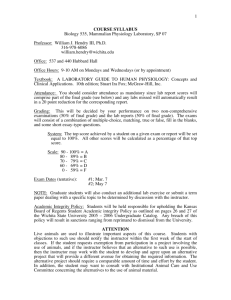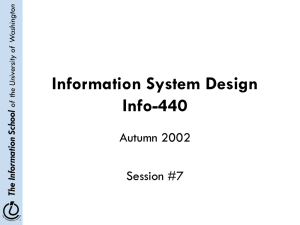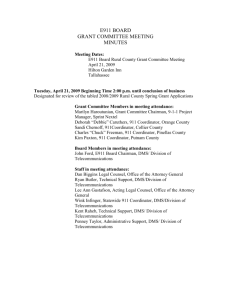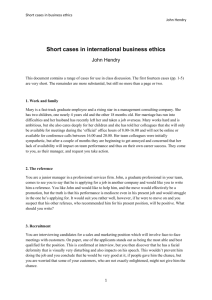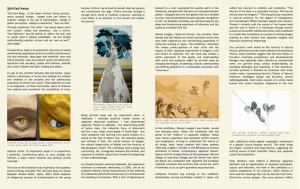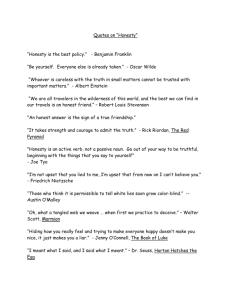York University Department of Languages, Literatures and
advertisement
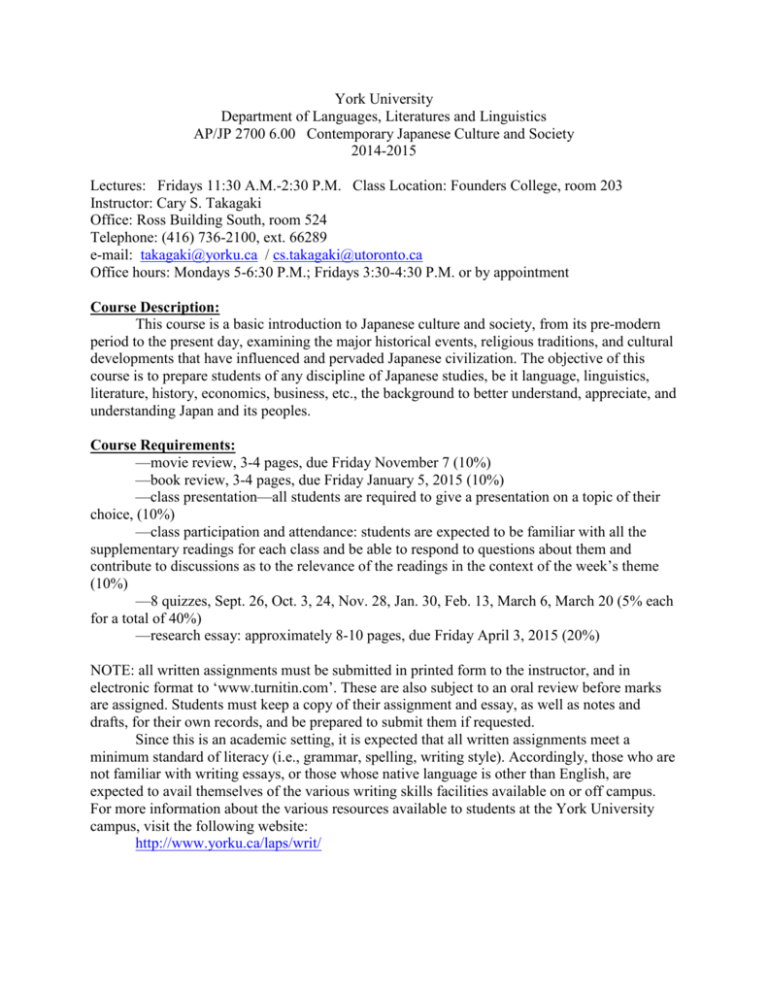
York University Department of Languages, Literatures and Linguistics AP/JP 2700 6.00 Contemporary Japanese Culture and Society 2014-2015 Lectures: Fridays 11:30 A.M.-2:30 P.M. Class Location: Founders College, room 203 Instructor: Cary S. Takagaki Office: Ross Building South, room 524 Telephone: (416) 736-2100, ext. 66289 e-mail: takagaki@yorku.ca / cs.takagaki@utoronto.ca Office hours: Mondays 5-6:30 P.M.; Fridays 3:30-4:30 P.M. or by appointment Course Description: This course is a basic introduction to Japanese culture and society, from its pre-modern period to the present day, examining the major historical events, religious traditions, and cultural developments that have influenced and pervaded Japanese civilization. The objective of this course is to prepare students of any discipline of Japanese studies, be it language, linguistics, literature, history, economics, business, etc., the background to better understand, appreciate, and understanding Japan and its peoples. Course Requirements: —movie review, 3-4 pages, due Friday November 7 (10%) —book review, 3-4 pages, due Friday January 5, 2015 (10%) —class presentation—all students are required to give a presentation on a topic of their choice, (10%) —class participation and attendance: students are expected to be familiar with all the supplementary readings for each class and be able to respond to questions about them and contribute to discussions as to the relevance of the readings in the context of the week’s theme (10%) —8 quizzes, Sept. 26, Oct. 3, 24, Nov. 28, Jan. 30, Feb. 13, March 6, March 20 (5% each for a total of 40%) —research essay: approximately 8-10 pages, due Friday April 3, 2015 (20%) NOTE: all written assignments must be submitted in printed form to the instructor, and in electronic format to ‘www.turnitin.com’. These are also subject to an oral review before marks are assigned. Students must keep a copy of their assignment and essay, as well as notes and drafts, for their own records, and be prepared to submit them if requested. Since this is an academic setting, it is expected that all written assignments meet a minimum standard of literacy (i.e., grammar, spelling, writing style). Accordingly, those who are not familiar with writing essays, or those whose native language is other than English, are expected to avail themselves of the various writing skills facilities available on or off campus. For more information about the various resources available to students at the York University campus, visit the following website: http://www.yorku.ca/laps/writ/ Penalties: It is customary in a university setting to impose penalties for late submission of written assignments in order to be “fair” to those students who have made the effort to submit material on time. Accordingly, late assignments will be penalized 2% per day unless prior arrangements have been made with the instructor or a valid medical excuse is provided. Make-up quizzes are allowed if the student has a valid excuse (this usually entails a note from a physician). However, be aware that make-up quizzes will be more difficult than the regular ones on the premise that, (i) the more obvious questions get used in the regular quizzes, and (ii) the student will have had more time to study than the rest of the class. Required Text: —Hendry, Joy. Understanding Japanese Society, 4th edition (London & NY: Routledge, 2013) —Supplementary readings can be found on the course website or can be accessed through the York library catalogue. Course Website: This course uses a website to make lecture outlines available to the student. However, this is only a guide to taking notes, and not a substitute. Copyright concerns will restrict the lecture material available on the website. The website is also used to provide information on assignments, essay topics, etc. Students are strongly urged to check it on a regular basis. The website can be accessed through: https://moodle.yorku.ca/ Academic Honesty The following is from the York University 2014-2015 calendar: The Policy on Academic Honesty is an affirmation and clarification for members of the University of the general obligation to maintain the highest standards of academic honesty. As a clear sense of academic honesty and responsibility is fundamental to good scholarship, the policy recognizes the general responsibility of all faculty members to foster acceptable standards of academic conduct and of the student to be mindful of and abide by such standards. Academic honesty requires that persons do not falsely claim credit for the ideas, writing or other intellectual property of others, either by presenting such works as their own or through impersonation. Similarly, academic honesty requires that persons do not cheat (attempt to gain an improper advantage in an academic evaluation), nor attempt or actually alter, suppress, falsify or fabricate any research data or results, official academic record, application or document. Suspected breaches of academic honesty will be investigated and charges shall be laid if reasonable and probable grounds exist. A student who is charged with a breach of academic honesty shall be presumed innocent until, based upon clear and compelling evidence, a committee determines the student has violated the academic honesty standards of the university. A finding of academic misconduct will lead to the range of penalties described in the guidelines which accompany this policy. In some cases the University regulations on non-academic discipline may apply. A lack of familiarity with the Senate Policy and Guidelines on Academic Honesty on the part of a student does not constitute a defence against their application. Some academic offences constitute offences under the Criminal Code of Canada; a student charged under University regulations may also be subject to criminal charges. Charges may also be laid against York University students for matters which arise at other educational institutions. Information about guidelines and procedures related to this policy can be obtained from the University Secretariat website (http://www.yorku.ca/secretariat/policies/). As a student it is your responsibility to ensure the integrity of your work and to understand what constitutes an academic offence. If you have any concerns that you may be crossing the line, always ask your instructor. Plagiarism will be dealt with strictly in accordance to university guidelines. It is incumbent on the part of the student to understand the nature of plagiarism and to understand the consequences of this offence. Note: All students are expected to familiarize themselves with the following information, available on the Senate Committee on Academic Standards, Curriculum & Pedagogy webpage (see Reports, Initiatives, Documents) http://www.yorku.ca/secretariat/senate/committees/ascp/documents/CourseInformationForStude ntsAugust2012.pdf • Senate Policy on Academic Honesty and the Academic Integrity Website • Ethics Review Process for research involving human participants • Course requirement accommodation for students with disabilities, including physical, medical, systemic, learning and psychiatric disabilities • Student Conduct Standards • Religious Observance Accommodation Course Schedule The following is a tentative schedule of lecture topics. The interests of the class may result in certain topics receiving more, or less, attention. Therefore, the topics may not necessarily be covered on the dates assigned to them. WEEK 1: Friday September 12, 2014 —administrative matters; survey of course —“The Historical and Mythological Foundations of Japan” [Hendry, chapter 1] WEEK 2: Friday September 19, 2014 —“Religious Influences” [Hendry, chapter 7] WEEK 3: Friday September 26, 2014 QUIZ #1: history [Hendry, chapter 1] —“Socialisation and classification” [Hendry, chapter 3] SUPPLEMENTARY READING: Emiko Ohnuki-Tierney. “Daily hygiene and classification of space,” pp. 21-27; “The inside: outside opposition and the classification of people,” pp. 39-43, in Illness and Culture in Contemporary Japan (Cambridge: Cambridge University Press, 1984) WEEK 4: Friday October 3, 2014 QUIZ #2: religion [Hendry, chapter 7] —“Status, hierarchy and ethnic diversity” [Hendry, chapter 6] SUPPLEMENTARY READING: Emiko Ohnuki-Tierney. “The burakumin,” in Illness and Culture in Contemporary Japan (Cambridge: Cambridge University Press, 1984), pp. 43-46 WEEK 5: Friday October 10, 2014 —“The house and family system” [Hendry, chapter 2] WEEK 6: Friday October 17, 2014 —“The house and family system” cont’d [Hendry, chapter 2] WEEK 7: Friday October 24, 2014 QUIZ #3: status, hierarchy, and ethnic diversity; the house & family system [Hendry, chapters 2 & 6] —“Community and neighbourhood” [Hendry, chapter 4] WEDNESDAY OCTOBER 29-SUNDAY NOVEMBER 2, 2014: CO-CURRICULAR DAYS: NO CLASSES WEEK 8: Friday November 7, 2014 MOVIE REVIEW DUE —traditional Japanese culture [Hendry, chapter 10] WEEK 9: Friday November 14, 2014 —traditional Japanese culture, cont’d [Hendry, chapter 10] WEEK 10: Friday November 21, 2014 —traditional Japanese culture, cont’d [Hendry, chapter 10] WEEK 11: Friday November 28, 2014 QUIZ #4: Japanese culture [Hendry, chapter 10] —food in Japan SUPPLEMENTARY READINGS: Lorie Brau, “Oishinbo’s adventures in eating: food, communication, and culture in Japanese comics,” in Gastronomica—The Journal of Food and Culture, vol. 4, no. 4 (Fall, 2004), pp. 34-45 [THIS ARTICLE IS AVAILABLE THROUGH THE YORK LIBRARY CATALOGUE] —Anne Allison, “Japanese Mothers and ‘obentos’: The Lunch-box as Ideological State Apparatus,” in Anthropological Quarterly, vol. 64, no. 4 (October, 1991), pp. 195-208 [THIS ARTICLE IS AVAILABLE THROUGH THE YORK LIBRARY CATALOGUE] WEEK 12: Friday December 5, 2014 —Christmas & New Years in Japan SUPPLEMENTARY READING: Konagaya Hideo. “The Christmas Cake: A Japanese Tradition of American Prosperity” The Journal of Popular Culture (Spring 2001), vol. 34, no. 4, pp. 121136 [THIS ARTICLE IS AVAILABLE THROUGH THE YORK LIBRARY CATALOGUE] TERM 2 WEEK 1: Friday January 9, 2015 BOOK REVIEW DUE —“Ritual and the life cycle” [Hendry, chapter 8] WEEK 2: Friday January 16, 2015 —education in Japan [Hendry, chapter 5] WEEK 3: Friday January 23, 2015 —education in Japan [Hendry, chapter 5] WEEK 4: Friday January 30, 2015 QUIZ #5: education [Hendry, chapter 5] —“Opportunities for working life” [Hendry, chapter 9] FRIDAY FEBRUARY 6, 2015: LAST DAY TO DROP THIS COURSE WITHOUT ACADEMIC PENALTY WEEK 5: Friday February 6, 2015 —health in Japan [Hendry, chap. 3] SUPPLEMENTARY READINGS: Emiko Ohnuki-Tierney. “Daily hygiene and classification of time,” pp. 27-31; “Cancer,” pp. 62-66; “Suicide” pp. 66-67, in Illness and Culture in Contemporary Japan (Cambridge: Cambridge University Press, 1984) WEEK 6: Friday February 13, 2015 QUIZ #6: health in Japan [Hendry, chapter 3] —Gift giving in Japan SUPPLEMENTARY READINGS: Millie R. Creighton, “‘Sweet love’ and women’s place: Valentine’s Day, Japan Style” Journal of Popular Culture, (Winter 1993), vol. 27, no. 3, pp. 119 [THIS ARTICLE IS AVAILABLE THROUGH THE YORK LIBRARY CATALOGUE] —Joy Hendry. “The Purpose and Meaning of Wrapping,” in Wrapping Culture (Oxford: Clarendon Press, 1993), pp. 8-26 —“Humidity, hygiene, or ritual care: some thoughts on wrapping as a social phenomenon” in Ben-ari, Eyal, Brian Moeran, James Valentine, eds. Unwrapping Japan (Honolulu: University of Hawaii Press, 1990), pp. 18-35 Saturday February 14-Friday February 20, 2015: Reading Week: NO CLASSES WEEK 7: Friday February 27, 2015 —“Government and the craft of politics” [Hendry, chapter 11] WEEK 8: Friday March 6, 2015 QUIZ #7: government in Japan [Hendry, chapter 11] —“The legal system and social control” [Hendry, chapter 12] WEEK 9: Friday March 13, 2015 —the status of women WEEK 10: Friday March 20, 2015 QUIZ #8: the legal system; the status of women [Hendry, chapter 12] —popular culture in Japan —presentations WEEK 11: Friday March 27, 2015 —pop culture in Japan —presentations WEEK 12: Friday April 3, 2015 ESSAY DUE —pop culture in Japan —presentations
